In high school, Anna Cetera knew she wanted to make an impact in the health field, however, as a first-generation college student, she was unaware of the broad array of options available to her. Knowing that she had a passion for biology, mathematics, and physics she put those keywords in a search engine and attached the word “job” at the end, thus beginning her undergraduate studies in Biomedical Engineering at the University of Rhode Island.
“I was completely unaware that I signed up for one of the most challenging majors that a university could offer,” said Cetera. She quickly found her place in the tight-knit engineering community through the ease of joining student organizations and being a part of the Engineering Learning Communities in Tucker Hall in 2019. “The friendships I formed there turned out to be incredibly meaningful, especially when the COVID-19 pandemic hit. Many of us ended up rooming together in an off-campus house during that time. Being part of these living-learning communities really helped me excel academically, since most of us were taking similar courses and could collaborate on studies and projects. It also strengthened our sense of community, which was a huge support during the uncertainties brought on by the pandemic.”
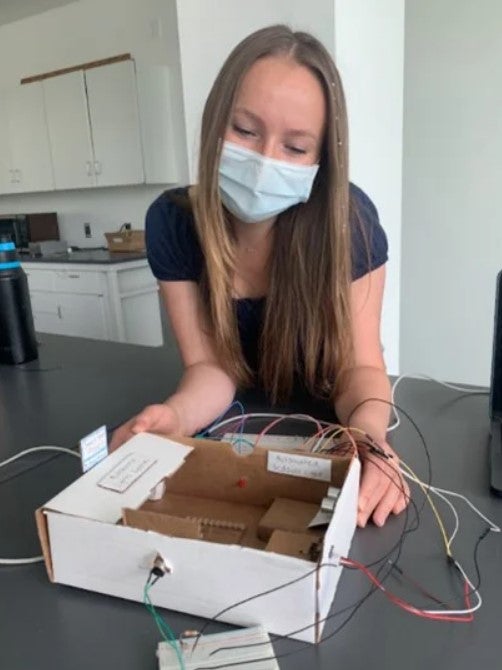
“URI uniquely provides a distinctive sense of community among its faculty, students, and beyond,” said Cetera
The mentors that she formed personal and professional relationships with led her to shift her career path. As a first-generation college student, her initial plans were to obtain a bachelor’s degree in engineering, which would have been an accomplishment in and of itself for her and her family, but she also became an integrated, bilingual student in Spanish through the International Engineering Program, where she earned both a B.S. in Biomedical Engineering and a B.A. in Spanish. In this 5-year program, she spent a year abroad studying and interning alongside natives from Spain at the University of Cantabria in Santander, Spain. “Through this experience, not only did I increase my cultural competency skills by immersing myself in the Spanish language and culture, but I was also able to become a global engineer through traveling and seeing many countries within and outside of Europe,” she states. She visited a total of 14 different countries while abroad.
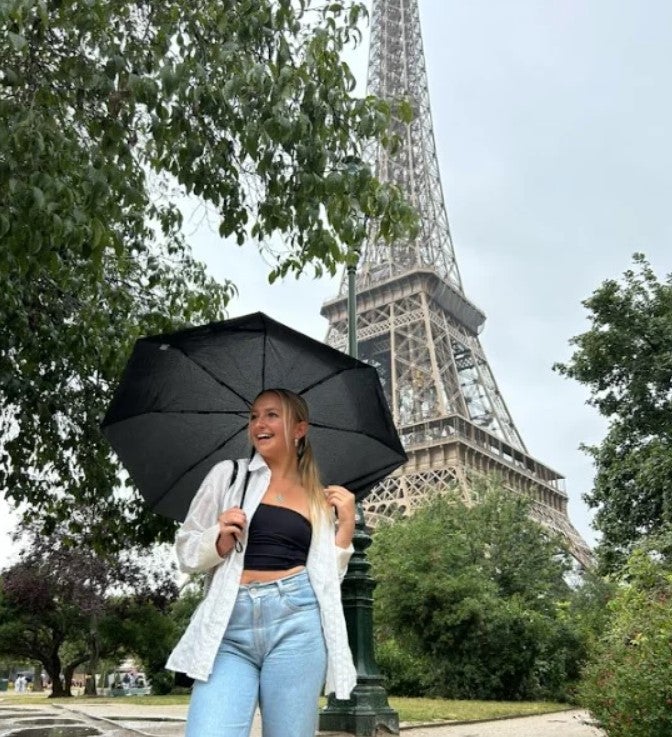
Cetera sought out research opportunities available at URI and became involved in the research setting after sophomore year. Through her various research experiences in the Wearable Biosensing Laboratory, the Motor Control and Rehabilitation Laboratory, and mainly the Translational Neurorobotics Laboratory (TNLab) with professor Reza Abiri, she gained a true passion for curiosity and impactful research, as well as mentoring other undergraduate students that worked alongside my research project in the TNLab.
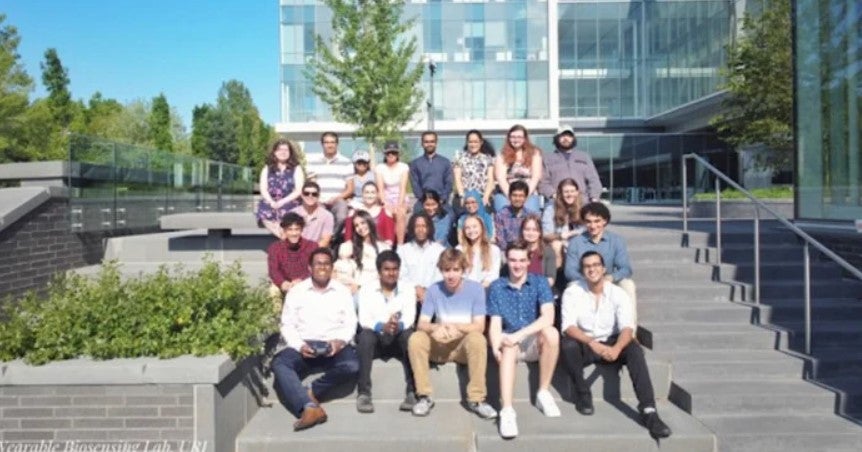
In her junior year, Cetera became the vice chair of the Institute for Electrical and Electronics Engineering and the Outreach Chair for the Society for Women Engineers. In these leadership positions, she coordinated professional development workshops and tutor sessions to assist undergraduate students in successful professional and academic performance. Additionally, she promoted engineering careers by organizing monthly SWE Next hands-on engineering events for girls within/outside of Rhode Island middle schools, Girl Scout troops, and the Latinx community. She also organized “Women in Engineering Day” for high school students to shadow current URI female engineers.
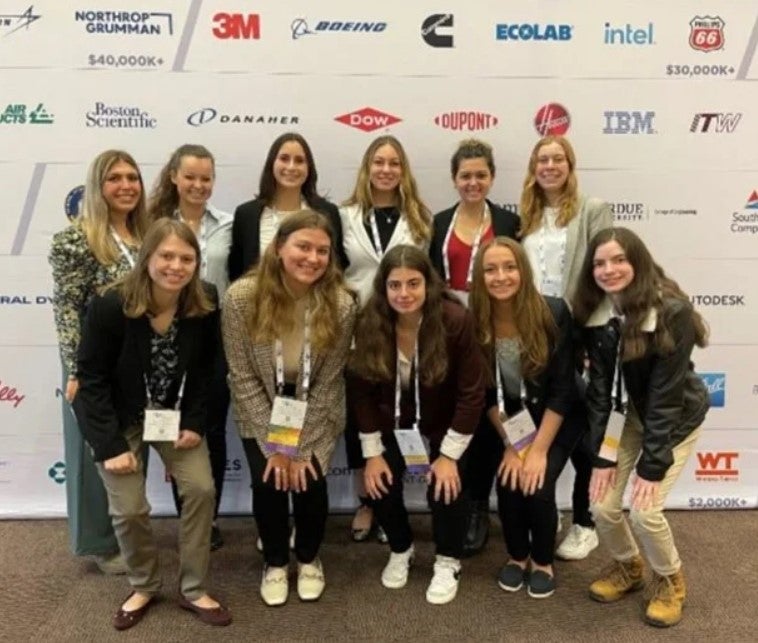
Many of the challenges she faced stemmed from her inability to “say no” to the great amount of available academic and professional opportunities at URI. As the first person in her family to attend college, she felt compelled to maximize her future success by building a strong resume. This drive led her to take on leadership roles in student organizations, engage deeply in research, study abroad, and learn a new language, all while managing a rigorous academic schedule. “Balancing all these commitments sometimes led to stress and time management issues, which occasionally impacted my GPA and my ability to participate as fully as I would have liked in each activity,” said Cetera.
However, the professors within the College of Engineering and the College of Arts and Sciences were always accommodating and were willing to support her through her academic career. “Each professor took the time to get to know me and the unique pressures I faced as a first-generation college student striving for excellence.” Many of them took the time to provide personalized guidance, flexible office hours, and offered additional resources to ensure she could keep up with coursework while balancing other commitments. “Their mentorship extended beyond academic advice to include career planning and personal development, which was invaluable. This supportive community of educators was crucial in helping me navigate the complexities of college life, enabling me to thrive despite the challenges,” said Cetera.
One experience that really stands out for her was when she served as the Outreach Chair for the Society of Women Engineers at URI. “It was incredibly rewarding to organize events for young girls, particularly as a woman in the engineering field. A moment I’ll always remember is when I helped a young girl build an electrical circuit at one of our events. You should have seen her excitement—it was like watching a light bulb turn on, literally and figuratively, when she got the circuit to work, and the bulb lit up. She was so thrilled, she immediately said she wanted to be an electrical engineer.” This experience reinforced her belief in the impact she was making on the community, both within and beyond URI.
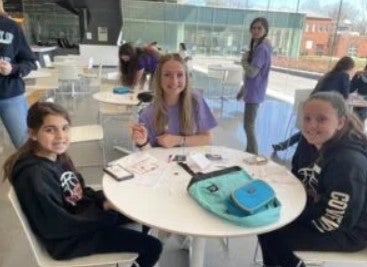
Additionally, she says the International Engineering Program (IEP) was transformative, significantly enhancing her communication and interpersonal skills. “One of my mentors emphasized the importance of communication, noting that ‘your job may get you there, but your ability to communicate will earn you the promotion.’” This proved true during her travels abroad, where she navigated language barriers and cultural differences. Learning to effectively communicate in these situations was crucial; it not only prevented me from losing my way while traveling in a new country, but also proved to be integral in my professional life as engineering increasingly involves global collaboration. The ability to engage with people from diverse backgrounds and cultures is essential for fostering teamwork and promoting equity in the workplace.”
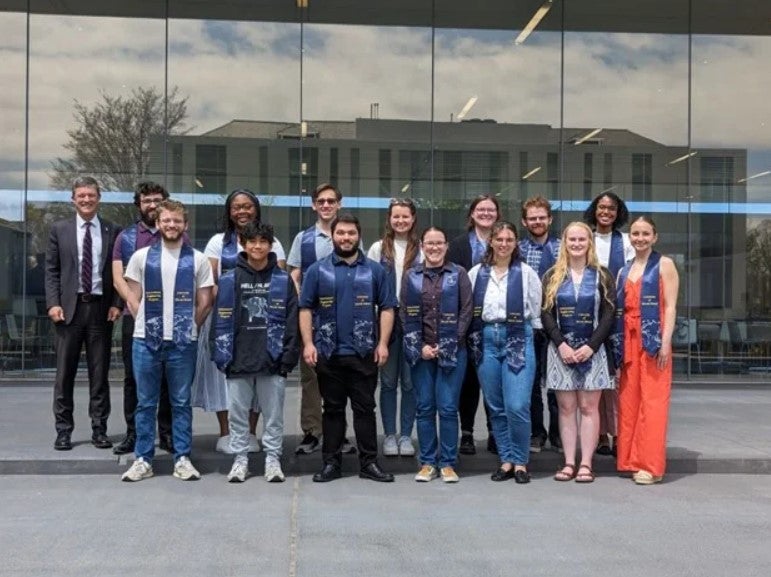
For her senior capstone project, she was involved with a research project in the Motor Control and Rehabilitation Laboratory (URI) under the guidance of professor Mariusz P. Furmanek. Her team designed a novel, instrumented gripping object – KinetoSense– that is weight adjustable and ergonomic with kinematic and haptic measurement capabilities during motor movement tasks for neuroscientific research, manual skill training, and neurological rehabilitation. “I applied real time signal processing techniques for a real-time system that displayed the data measured from the force/torque (Nano17) sensors and provided feedback mechanisms for the patients.” The job further reinforced her passion for research and enabled her to expand her knowledge in real-time systems and hardware-software integration.
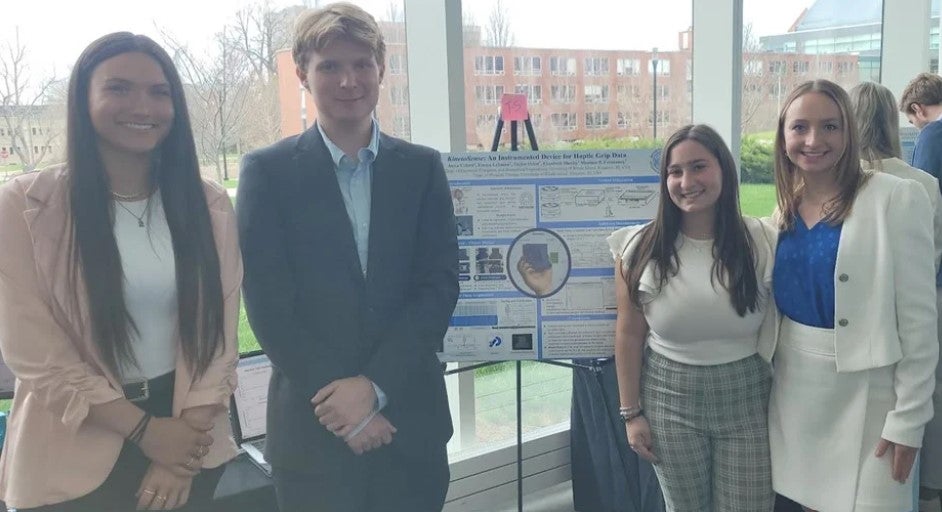
Her research at URI’s Translational Neurorobotics Laboratory, under the guidance of professor Reza Abiri, involves developing noninvasive brain-computer interface (BCI) systems and assistive neurorobotic devices aimed at restoring upper-limb function. She is thrilled to be continuing her education at URI, pursuing a Master of Science in Electrical Engineering with a focus on real-time systems and neural networks to advance noninvasive brain-computer interface systems. She aspires to earn a Ph.D. in BCI development. “I plan to establish my own laboratory to provide support and mentorship to aspiring students.”
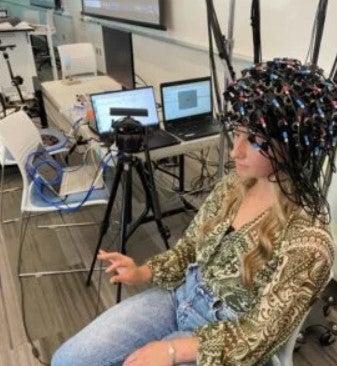
“I always mention to prospective students when I volunteer at the open house days that, like many locals, I was hesitant about attending my state school, fearing that my experience wouldn’t be as going to a university further away.” However, URI was financially, the most feasible option at the time. “Thankfully, it turned out to be a great choice, if not the best choice. I not only found my place and my community, but also developed such a strong connection to the school that I decided to stay on for a master’s degree. The opportunities to make an impact and be successful, whether it be in research or in your professional and personally life, are truly endless at URI.”
